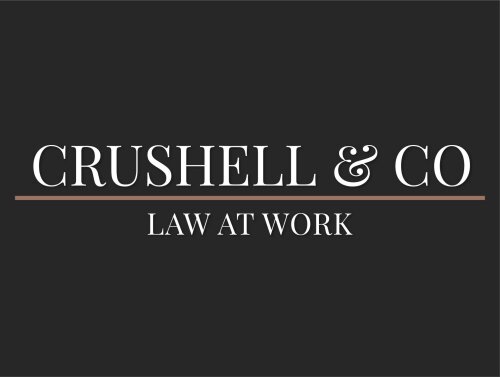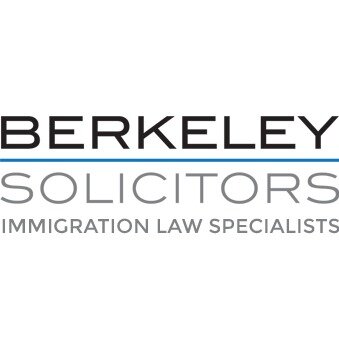Best Work Permit Lawyers in Dublin
Share your needs with us, get contacted by law firms.
Free. Takes 2 min.
List of the best lawyers in Dublin, Ireland
About Work Permit Law in Dublin, Ireland
Work Permit Law in Dublin, Ireland focuses on regulating the employment of non-European Economic Area (EEA) nationals. The aim is to ensure that the employment of foreign nationals is conducted legally and fairly while protecting job opportunities for Irish and EEA citizens. There are various types of employment permits available, each tailored to different employment circumstances including General Employment Permits, Critical Skills Employment Permits, and Dependant/Partner/Spouse Employment Permits, among others.
Why You May Need a Lawyer
Seeking legal advice might be necessary due to the complexities involved in the application process and compliance with immigration laws. Common situations where legal assistance may be required include:
- Understanding the specific type of work permit you need.
- Assistance with the application process, including documentation and submission.
- Dealing with permit renewals and maintaining legal status.
- Handling potential refusals or appeals in case of denied applications.
- Ensuring compliance with Ireland’s labor laws and immigration policies.
Local Laws Overview
Work Permits in Dublin are governed by several local laws designed to manage the employment of non-EEA nationals while safeguarding local workers. Some key aspects include:
- The Employment Permits Act 2006 and the Employment Permits (Amendment) Act 2014 regulate the eligibility and application process for employment permits.
- Critical Skills Employment Permits are designed for highly skilled occupations with a shortage of local talent.
- General Employment Permits apply to most other occupations, subject to a labor market needs test.
- Renewals and changes in employment circumstances require strict adherence to the prescribed protocols to maintain legal work status.
- Employers must be registered with the Revenue Commissioners and the Companies Registration Office to hire non-EEA workers legally.
Frequently Asked Questions
What are the main types of work permits available in Dublin?
The main types are General Employment Permits, Critical Skills Employment Permits, Dependant/Partner/Spouse Permits, Reactivation Employment Permits, and Contract for Services Employment Permits.
Who is eligible for a Critical Skills Employment Permit?
This permit is aimed at highly skilled workers in roles with a shortage of local talent. Occupations listed on the Critical Skills Occupations List are eligible.
How do I apply for a General Employment Permit?
Applications are submitted online through the Employment Permits Online System (EPOS). Required documents include job offer details, passport, and evidence of the employer's registration with relevant authorities.
What is a labor market needs test?
A labor market needs test requires demonstrating that a vacancy could not be filled by an Irish or EEA worker. This often involves advertising the position in local and EU-wide job portals for a specified period.
How long does it take to process a work permit application?
Processing times can vary but typically range from 6 to 12 weeks. Processing times may be longer during peak periods.
Can my family join me while I work in Dublin?
Dependents of Critical Skills Employment Permit holders can join immediately, while those of General Employment Permit holders may join after one year, subject to visa requirements.
What happens if my work permit application is denied?
If an application is denied, you can appeal the decision within 28 days of receiving the notice of refusal. Legal assistance is advisable during the appeal process.
How can I renew my work permit?
Renewals can be applied for online before the current permit expires. You'll need to provide updated employment details and evidence of continued compliance.
Can a work permit be transferred to a new employer?
Yes, but it involves a new application process with details of the new employment. Approval must be secured before starting a new job.
Do I need a work permit if I’m an EU/EEA citizen?
EU/EEA citizens do not require work permits to work in Ireland due to freedom of movement within the EU/EEA.
Additional Resources
For further information and assistance, the following resources can be helpful:
- The Department of Enterprise, Trade and Employment: Manages the employment permit application process and provides guidance.
- INIS (Irish Naturalisation and Immigration Service): Provides information on visas, residency, and compliance.
- Citizens Information: Offers details on legal rights in Ireland and work permits.
- Local legal aid services and immigrant support organizations: Offer legal help and advisory services.
Next Steps
If you need legal assistance regarding a work permit in Dublin, consider the following steps:
- Consult with an immigration lawyer who specializes in employment permits to ensure you have expert advice tailored to your situation.
- Gather all necessary documentation, including job offers, passports, and proof of qualifications.
- Ensure your potential employer is aware of their obligations and is registered with the appropriate authorities.
- Prepare to meet any specific requirements of the permit type you need, such as labor market needs tests or visa applications for dependents.
- Regularly check processing times and follow up on your application status if necessary.
Lawzana helps you find the best lawyers and law firms in Dublin through a curated and pre-screened list of qualified legal professionals. Our platform offers rankings and detailed profiles of attorneys and law firms, allowing you to compare based on practice areas, including Work Permit, experience, and client feedback.
Each profile includes a description of the firm's areas of practice, client reviews, team members and partners, year of establishment, spoken languages, office locations, contact information, social media presence, and any published articles or resources. Most firms on our platform speak English and are experienced in both local and international legal matters.
Get a quote from top-rated law firms in Dublin, Ireland — quickly, securely, and without unnecessary hassle.
Disclaimer:
The information provided on this page is for general informational purposes only and does not constitute legal advice. While we strive to ensure the accuracy and relevance of the content, legal information may change over time, and interpretations of the law can vary. You should always consult with a qualified legal professional for advice specific to your situation.
We disclaim all liability for actions taken or not taken based on the content of this page. If you believe any information is incorrect or outdated, please contact us, and we will review and update it where appropriate.













